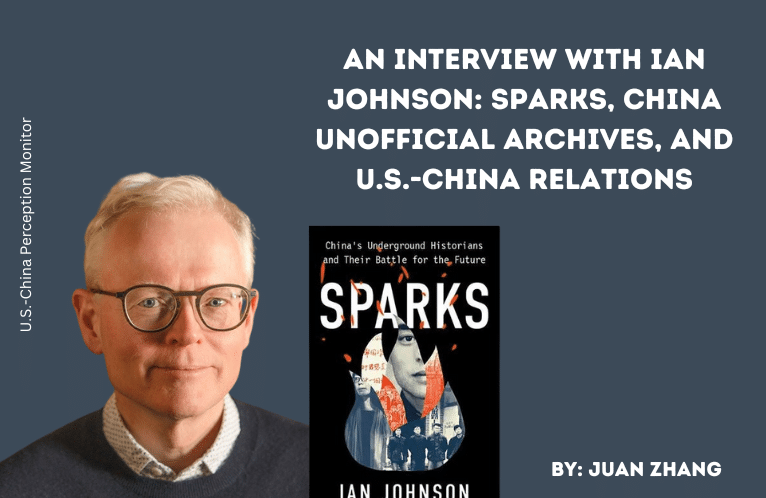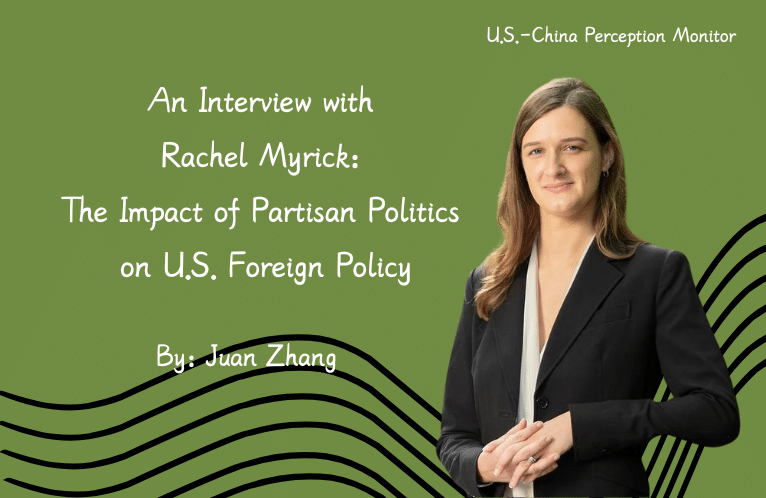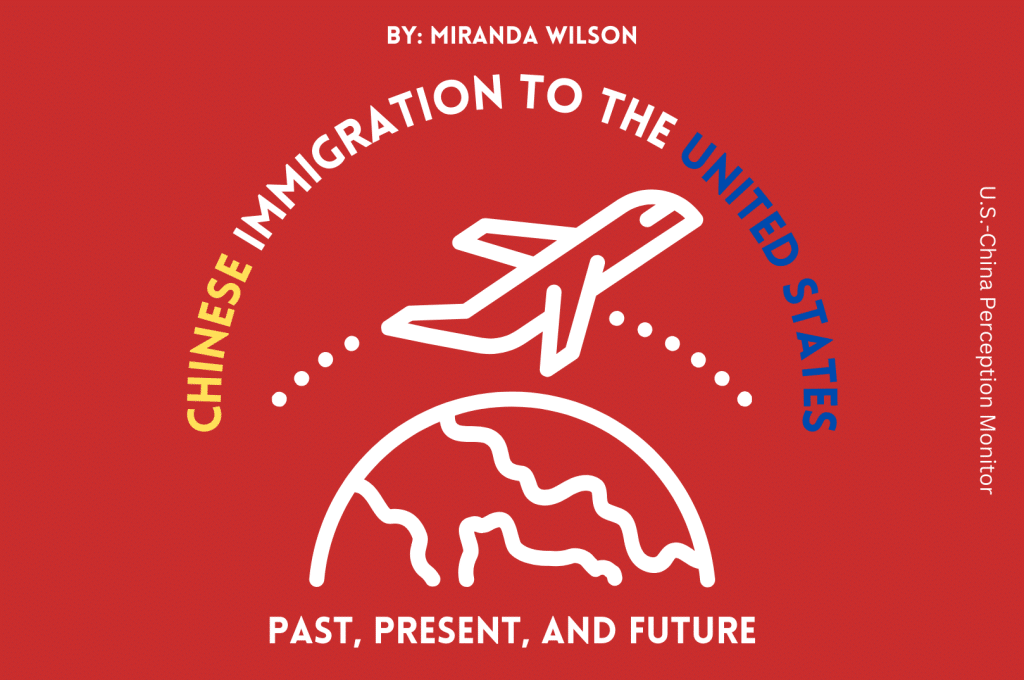With Trump in the Saddle, Where will the U.S. and China Ride?
The U.S. election, after a campaign of eighteen months that at times seemed to paralyze the entire American political process, is over. Donald Trump, a man with no government experience, little known interest in international affairs, and a checkered personal past that includes repeated business bankruptcies, repeated instances of inappropriate personal behavior, numerous insinuating appeals to ethnic nationalists within the U.S., and a record primarily of building his own “brand,” takes over the White House on January 20.
His campaign for the highest office in the United States consisted largely of strutting rhetorical demolitions of anyone in his way, most notably the boatload of Republican primary election candidates, each of whom shriveled under Trump’s colorful and humiliating assaults. Once he entered the presidential election contest against former Secretary of State Hillary Clinton, whose own “baggage” would have weighed heavily on her even if Trump and his minions had not carved new wounds next to the old sores and poured salt into all of them, Trump threw mixed his contentless pledge to “Make America Great Again” together with seething denunciations of trade agreements, American economic interdependence, and, in particular, Mexico and China, the two countries which, he told his angry audiences, were responsible for the crippling of their futures and their families’ wellbeing.
Since the election, everyone in the “commentariat” has set to work to explain how Trump won, what “went wrong” with their near-universal predictions of a Clinton victory, etc. These post-mortems will last another couple of weeks, indigestible in their sheer volume, and will recede as news of the new leader dominates the headlines. Indeed, everyone has begun weighing in with predictions, both respecting U.S. domestic policy changes and U.S. relations with the world.
At this early point, of course, nothing is certain. Those politically closest to the Trump movement are happily expecting Trump to succeed in what he pledged to do during his first hundred days on the job, a now-familiar To Do list mainly consisting of actions to destroy whatever President Obama managed to achieve during his eight years in office, starting with the annihilation of the Affordable Care Act, known to most people as “Obamacare,” and proceeding through all manner of reversals of Obama’s executive orders, for example in the area of environmental protection and climate-change.
Others in the prognosticator armies, though, are beginning to moot the theme that reality is more complex for any president than campaigning, and that even with both a House and Senate controlled by the same party as the President, all sorts of legal and political barriers will prevent Trump from simply overturning the American political and economic order with a few strokes of his pen.
Meanwhile, the identities of those even now, in the early aftermath of the election, staffing Trump in arranging the famous “Transition” from an outgoing to an incoming Administration, let alone the identities of those Trump will call on to form his cabinet and the core of his executive-branch administration for the coming years, are largely unconfirmed or utterly unknown. This is not surprising, and not particularly unique to Trump; the scramble for Who’s Who news right after any presidential election is routine. But, given Trump’s lack of a meaningful track record in the arena of American government and policy-making, ignorance of who is providing him with decision-making advice on unfamiliar realities is deeper than it would have been under, say, Hillary Clinton, whose coteries of advisors was more widely known.
The new leader will, perhaps, have greater latitude in areas of central interest to U.S.-China relations than he will in many other sectors. It is widely noted that the President has greater freedom of action, for example, on trade, and indeed on foreign policy more generally, than he/she often has with respect to domestic policies in which the legislative branch has a greater and more intrusive role. For this reason, observers in the U.S. and China who focus on the complexities of bilateral relations are straining to gain early impressions of what is to come.
My own sense, as a complete outsider to the Trump phenomenon, is something like this.
1) Given Trump’s apparent lack of any sense of history, American or otherwise, we cannot expect the man himself suddenly to discover nuance or any form of empathetic interest in Chinese economic or social realities or the politics that drive PRC behavior in any sector, let alone with specific regard to the U.S. Those who advise him on China are going to have to keep it simple, and their own ideological and professional agendas will play an unusually big role in forming the leader’s sense of priorities and alternative choices.
2) The few figures who have revealed themselves to be “advising” Trump on matters related to China – and they are very few – include individuals of longstanding, sometimes fiery, hostility to the PRC.
3) That so many senior national security-focused individuals accustomed to serving earlier Republican Administrations boldly dissociated themselves from Trump during the election campaign suggests that Trump and his close associates will have to extend their vacuum cleaner far into the ranks of “the willing” to form an Asia team, not only in the State Department but across the range of relevant executive branch institutions (Defense, Treasury, Justice, and so forth).
4) All recent “Transitions” from one president to the next, especially when the incoming president is from a different party from that of his predecessor, take a long time to complete. One remembers that, when the “EP-3 Crisis” broke out in April 2001, only two months after George W. Bush’s inauguration, key appointments to top-level U.S. government positions had not yet been confirmed by the Congress. Even with Congress in Republican hands, the filling out of the ranks of the new Administration will unfold over months.
5) I am agnostic on whether Trump will try to arrange for a vast increase in tariffs on Chinese imports, as he said he would do during the campaign. Tariffs are taxes. Someone may be able to explain to him that significant increases in the prices of products imported from China will hit struggling Americans in their wallets. He may not, however, care. This is an area where we may see some “pushback” from members of the Congress who belong to Trump’s own Republican Party.
6) President Xi Jinping sent Trump a dignified and positive message of congratulation immediately after the election. Chinese in and outside of government will surely be watching the U.S. under Donald Trump over the next six months to begin to form an overall impression of where the U.S. is going, in every sense, and will be considering calibrations of China’s global and bilateral stances accordingly. What China, despite the rigidities of its political system, has proven powerfully able to do in recent decades is to adjust and amend its course in order to turn new exigencies into opportunities. I would expect many signs of that from China, particularly if the Trump Administration turns out to be as ill-intended toward China as the candidate’s rhetoric, and the identification of those few figures known already to be his advisors on China, suggests it will.
7) There will very likely be some significant changes in the tone of the bilateral relationship. Despite bursts of Congressional outrage over human rights violations, “rule of law” deterioration, suppression of internet communication, etc. in China, I suspect the new White House will have little to say. A U.S. regime dominated by the inward-focused theme of “Making America Great Again” through the instrumentality of a mediagenic strongman leader, riding a wave of aggrieved popular passion, is unlikely to act heavy-handedly toward China on human rights issues. Of course, at the end of the day no U.S. administration has done that for decades, and an argument can be made that that is the wiser course. Whether that is a “positive” for U.S.-China relations remains to be seen.
8) Certain “contradictions” in U.S. policy-making may emerge in the short- to mid-term. For example, Trump has called loudly for much heavier military expenditures, including a significant expansion of U.S. naval power, and there is no doubt that the Asia-Pacific region is primarily a naval, rather than an Army or even an Air Force, concern. But Trump has also been critical of what he sees as the ill-advised involvement of the U.S., especially of American military power, in a series of draining and debilitating international conflicts (mainly in South Asia and the Middle East). He has muttered about the value of hitherto-sacrosanct American alliances, including both NATO and those in the Asia-Pacific region. His acolytes have regularly described the Obama “Pivot to Asia” as badly designed and a failure. Somehow – and it is likely to be through familiar lobbying for funds among the myriad interest groups both within the government and in business – the new Administration will have to come to grips with how far it is willing to go in buying and committing the muscle it seems to think it must have to confront a China that, under Xi Jinping has proven to be no friend of the U.S. in the Asia-Pacific region.
At the end of the day, even for a leader as inexperienced and as ill-prepared as Trump, either he or his advisors will soon confront the reality that actions have consequences, and that in a society as massively complex as that of the U.S., no matter how blinkered and how self-reinforcing the sources of information that feed the man in the Oval Office, the possibilities arising from the exercise of his prerogatives will turn out to be multiple and interwoven. Depriving twenty million people of health insurance, for example, will hit the very social segments whose misery and anger helped propel the new leader to office. Tax reforms that enrich the very rich and engorge large American corporations may come to be seen as inconsistent with the interests of those struggling for survival in the dying towns and humble hollows of the American heartland. Throwing a forty-five percent tariff on Chinese imports (if Trump were able to do that) will undoubtedly engender Chinese responses. Killing TPP – a goal that the Democratic “base” in organized labor shared with the economic nationalists whom Trump has sought to claim as his own – does nothing for the U.S. but potentially does a lot for China, with Beijing’s own multinational trade agreement proposals reinvigorated once America has walked off the stage. As Gilbert and Sullivan once wrote,
Things are seldom what they seem,
Skim milk masquerades as cream;
Highlows pass as patent leathers;
Jackdaws strut in peacock’s feathers.
There is wisdom in the idea that every nation must see to its domestic foundations – physical, economic, social – before it can hope to advance its interests globally. The U.S. has huge deficits to deal with: crumbling infrastructure at all levels, vast wastage of human talent, imploding human communities across the face of the nation. The impulse to turn to America’s internal wounds is understandable, and not necessarily a bad thing. But, just as China dwells incessantly on its humiliation at the hands of predatory foreigners and the threat of “hostile Western forces” and the dangers of “Western values” as it goes about the Great Rejuvenation of the Chinese People, a Trump-led United States bent on “Making America Great Again” will find that task harder to achieve if it treats “the outside world,” very much including its gigantic Chinese global partner, as a unidimensional menace. China and the United States alike should approach each other, in this time of political transition in both countries that will extend over the next year and more, with caution and circumspection, not with new doses of hyperbolic rhetoric or policy thrusts that fail to comprehend their likely, complex, outcomes. At this very early point following the election of Donald Trump, the core question – likely to remain the core question far into the future – is whether a man whose entire career appears to have been focused on himself – self-advancement, self-aggrandizement, self-enrichment and the adulation of more humble people for himself – will be able to govern in a manner that does not turn the fates of the American people, the Chinese people, and indeed the earth itself into yet another quest for his own personal elevation.
Written by: Dr. Robert A. Kapp, China Program Senior Advisor









